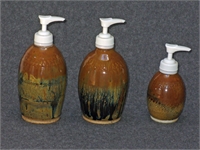
The Truth About “Hypoallergenic” Products
Important Notice: Our web hosting provider recently started charging us for additional visits, which was unexpected. In response, we're seeking donations. Depending on the situation, we may explore different monetization options for our Community and Expert Contributors. It's crucial to provide more returns for their expertise and offer more Expert Validated Answers or AI Validated Answers. Learn more about our hosting issue here.

The Truth About “Hypoallergenic” Products
You must be logged in to post a comment.
By Definition
Since the advent of so-called “hypoallergenic” products in the mid-1950s, a misconception has arisen among many consumers that continues to this day. Many who purchase such products believe they are buying a type of insurance against the occurrence of allergic reactions when buying items such as soaps, shampoos, or lotions labeled “hypoallergenic.” The truth of the matter is, however, this is not the case. And much of this belief seems to stem from a general misunderstanding of the term "hypoallergenic" itself.
Invented in 1953 by the cosmetics industry as part of a cosmetics ad campaign, the term “hypoallergenic” was derived from the Latin prefix hypo, which simply means “below or less.” Thus, products using this designation are touting the presence of less allergens–nothing more. And what is essential to understand is that manufacturers of such products are not required to submit substantiation of their hypoallergenicity claims to the FDA. In fact, the term can mean whatever a particular company wants it to mean. Similarly, the commonly-used term "dermatologist tested" has no scientific standards or regulations.
The Facts
According to a September 20, 2010 article appearing in Mother Jones, the magazine known for its investigative reporting contacted several cosmetic companies and asked them how they define the terms "hypoallergenic" and "dermatologist tested." Of the seven major manufacturers approached, only three — Johnson’s (the baby products division of Johnson & Johnson’s), Colgate-Palmolive, and Novartis — responded.
A Novartis publicist said the company’s Keri Basic Essentials lotion qualifies as hypoallergenic "because it is fragrance free and contains ingredients such as vitamins E and Aloe Vera." She also cautioned that despite the label, "we always suggest trying a small amount of any new product before applying all over to ensure they do not have a reaction." Publicists from Johnson’s and Colgate-Palmolive stated that external dermatologists had tested their products, and that they used ingredients that had “low allergen potential.” But when asked who the dermatologists were who conducted the testing and what standards were used to determine an ingredient’s allergic potential, neither company would give specifics.
While many consumers assume that purchasing hypoallergenic products is simply their best defense against having allergic reactions when using necessary products — what can it possibly harm? — few consider that such products could actually be doing considerable damage to their skin. Here are some points to consider before buying these products:
> A product’s so-called “gentleness” only means that it does not contain the allergens or harsh ingredients that commonly cause irritation to the skin. They may contain any number of other ingredients that will cause an allergic reaction in you.
> Facial cleansers, as the name indicates, are intended to cleanse the skin. These cleansers contain active ingredients designed to rid the skin of free radicals, pollutants, and make-up residues that are all recognized as harmful to the skin and can cause skin cell damage.
However, it should be noted that despite their apparent beneficial effects, many cleansers can actually do more harm than good, causing brittleness of the skin, facial lines, and wrinkles. This is why the cosmetic industry often suggests pairing moisturizing creams with their facial skin care products–to neutralize the very damage their cleansers cause. In this way, they can establish an endless cause/repair cycle that ultimately results in getting more of your money as well.
> Some household cleaning products including laundry detergents and dish soaps are considered hypoallergenic. Many of these products don’t use fragrances or dyes commonly associated with allergies. But it should not be assumed that such products cannot cause considerable damage to the skin.
Like other products similarly labeled, they are not regulated or held to any scientific standard and can therefore cause damage that is not immediately apparent. The products you choose to wash your laundry could actually be slowly damaging your skin over time.
> As with humans, pets can suffer allergic reactions to the pet products they come in contact with. If you are using hypoallergenic products — flea powders, shampoos, skin treatments — you could be damaging their skin in ways not immediately apparent.
(Disclaimer: The Image used is not intended to illustrate any particular product or manufacturer of hypoallergenic products.)